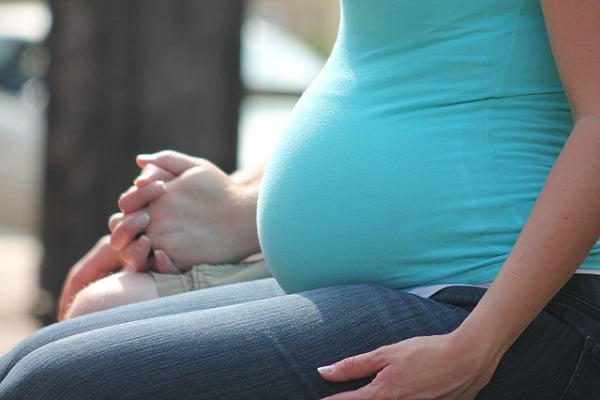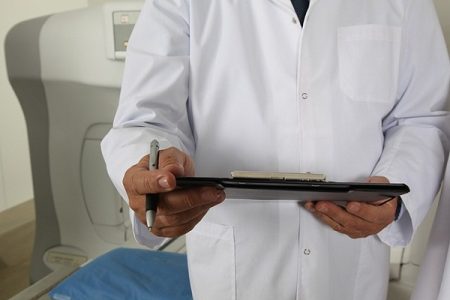Hemorrhoids During and After Pregnancy
- Updated on: Jul 15, 2024
- 4 min Read
- Published on Oct 3, 2019


Are hemorrhoids more common during pregnancy? Why do hemorrhoids occur during pregnancy?
During pregnancy, your uterus grows and you have an increased level of hormone called progesterone in your body. Coupled with constipation, this makes you more susceptible to developing hemorrhoids during pregnancy.
During pregnancy, the growing uterus exerts pressure on the pelvic veins and the inferior vena cava. Inferior vena cava is a large vein located right side of the body and gets blood from the lower limbs. This makes the return of blood from the lower half of your body slow, which in turn increases the pressure on the veins below the uterus and makes them dilate or swell.
If you develop constipation, which is another common problem during pregnancy, the condition may further worsen if you already have haemorrhoids. Constipation can also cause new haemorrhoids to develop because you tend to strain when having a hard bowel movement. Straining leads to hemorrhoids.
Increased level of progesterone during pregnancy relaxes the walls of your veins, allowing them to swell more easily. Progesterone is also responsible for slowing down your intestinal tract which contributes to constipation.
See also: Hemorrhoid Pain: How Can Piles Pain Be Relieved?
See also: How Long Do Hemorrhoids Last?
Hemorrhoids are most common in the third trimester of pregnancy. Some women experience it for the first time while they get pregnant. If you had haemorrhoid before getting pregnant, you are more likely to have them again now. Haemorrhoids can also develop while you’re pushing during the second stage of labor.
It is very common for pregnant women to develop a thrombosed hemorrhoid, which is a blood clot that forms inside the hemorrhoid, leading to an especially large and swollen lump near anus. These kinds of hemorrhoids are quite painful and make it hard to walk, sit, or have a bowel movement.
In most cases, however, hemorrhoids that develop during pregnancy go away soon after you give birth, especially if you’re careful and can prevent constipation.
How can you avoid getting hemorrhoids during pregnancy? How to prevent hemorrhoids during pregnancy?
Below are some ways which you can follow to prevent hemorrhoids when you’re pregnant:
- Eat high-fiber diet that includes plenty of whole grains, beans, fruits, and vegetables to avoid being constipated. Ask your healthcare provider about taking a fiber supplement or using a stool softener, If you’re already constipated
- Drink plenty of water every day
- Do regular exercise as long as your provider says it’s okay
- Don’t wait to go when you feel the urge to have a bowel movement, and try not to strain
- One should not sit on the toilet longer than necessary because sitting for an extended period puts pressure on your rectal area
- Perform Kegel exercises daily. It increases circulation in the rectal area and strengthens the muscles around the anus, reducing the chance of developing hemorrhoids. They also strengthen and tone the muscles around the vagina and urethra, which can help your body recover after you give birth.
- Don’t sit or stand for long stretches of time. If you are at work, get up from your desk and move around for a few minutes every hour or so. At home, try to lie on your side when sleeping, reading, or watching TV to take the pressure off your rectal veins and increase blood return from the lower half of your body.
Treating hemorrhoids while pregnant: How can you get rid of hemorrhoids while pregnant?
You can follow these remedies to treat hemorrhoids during pregnancy:
- Use cold by applying an ice pack with a soft covering to the affected area several times a day. Cold therapy helps in reducing the swelling and discomfort
- You can use heat to relieve yourself. It can be done by soaking your bottom in a tub of warm water for 10 to 15 minutes a few times each day
- You can also use cold and heat in succession as alternate therapy. First use cold then warm treatments, and repeat
- Place baking soda (wet or dry) on the area to reduce itching
- Keep yourself clean. Clean the affected area gently but thoroughly after each bowel movement. Use soft, unscented toilet tissue, which is less irritating than other varieties. Many women find it more comfortable to use unscented wipes rather than toilet tissue. You can also buy wipes moistened with witch hazel, specifically for treating hemorrhoids
- You may consult your healthcare provider about medication. Your provider may recommend a topical anaesthetic or medicated suppository that’s safe to use during pregnancy. Many hemorrhoid relief products are available, but ask your provider before trying one.
More: Bleeding Hemorrhoids (Piles): Why Do Hemorrhoids Bleed For Many Weeks?
More: Medicines for Hemorrhoids
What causes haemorrhoids after pregnancy?
Postpartum haemorrhoids are complications experienced by many women. In such cases, hemorrhoids develop after childbirth. Haemorrhoids are the swollen veins in the rectal area. They appear as a lump having an unusual swelling together as a single mass. They cause extreme itching and can be very painful. They may also cause rectal bleeding when you experience bowel movements.
Generally, haemorrhoids developed during pregnancy go after delivery but sometimes they may persist for a longer time even after the baby is delivered. It is estimated that around quarter of women who have haemorrhoids during pregnancy have them postpartum too.
You can get haemorrhoids after pregnancy due to various reasons:
- During pregnancy, there is an increase in progesterone in the body which relaxes the vein walls and leads to swelling of these veins easily
- Progesterone is also responsible for constipation since it slows down the intestinal tract
- During constipation, you tend to strain during a hard bowel movement. This straining can cause or worsen piles after pregnancy
- As the size of the uterus grows, the pelvic veins and inferior vena cava are pressurised. Inferior vena cava is a large vein that gets blood from the lower portion of our body. The veins below the uterus are put under pressure and get enlarged
- Haemorrhoids can also be developed due to extreme pushing at the time of delivery












